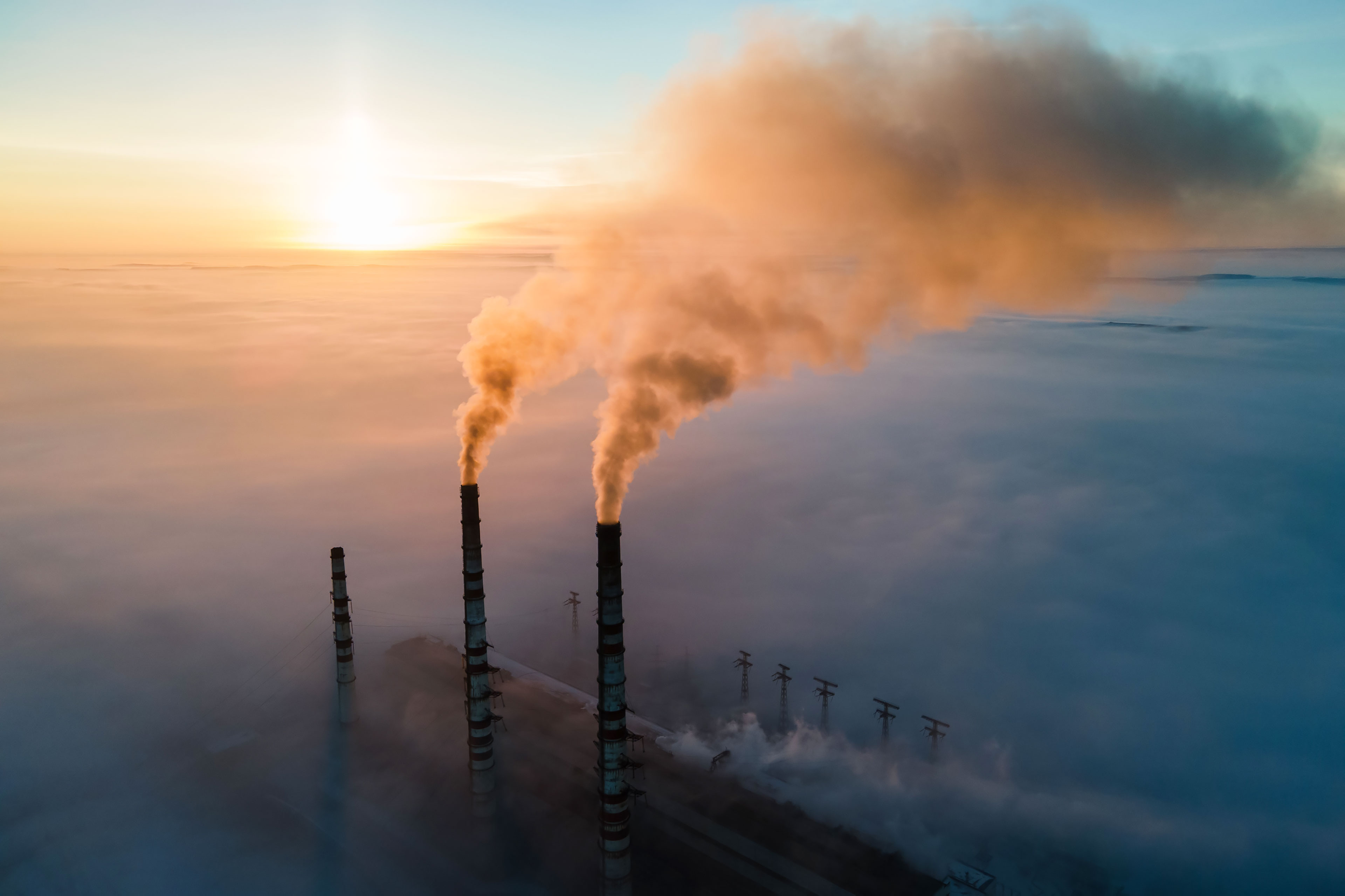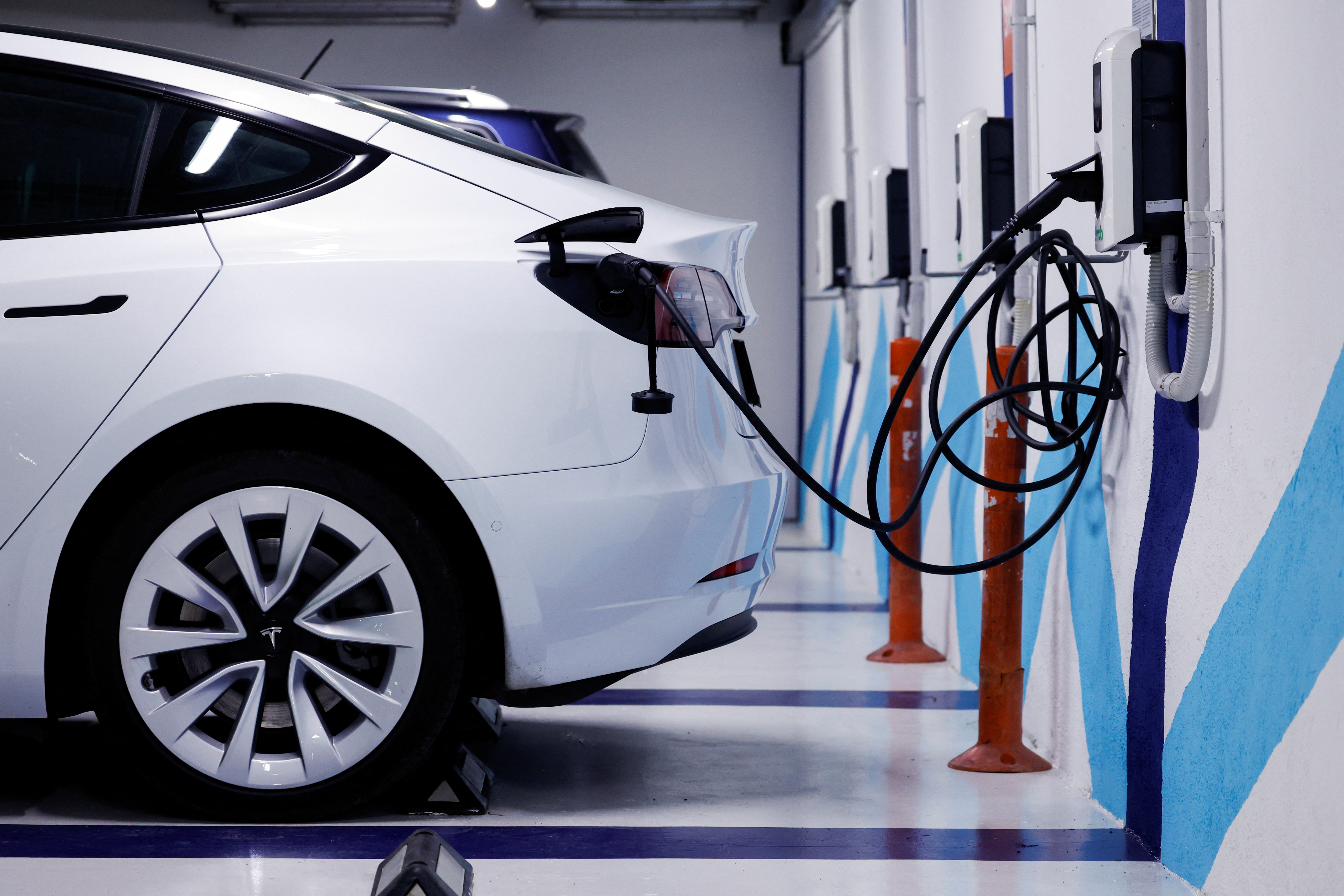
Global Emissions Set to Peak in 2024 Thanks to EVs & Clean Energy Initiatives
As the world faces the ongoing challenge of combating climate change, a significant shift is on the horizon.
According to a new report, global carbon emissions are set to peak in 2024, largely driven by the rapid adoption of electric vehicles (EVs) and clean energy solutions.
The report, released by key organizations in the clean energy space, signals a turning point for global emissions and highlights the importance of continued investment in sustainable technologies.
>> RELATED: Celadyne Brings Durable Hydrogen Fuel Cells Into Heavy-Duty Markets Via DOE Funding

The Role of Electric Vehicles (EVs) in Reducing Emissions
One of the most notable drivers behind this anticipated emissions peak is the widespread adoption of electric vehicles.
Fatih Birol, executive director of the International Energy Agency (IEA), emphasizes that the transition to EVs is happening faster than expected. “Electric vehicles are reshaping the automotive industry and are now becoming the driving force behind the decline in global emissions,” he states.
The shift from gasoline-powered vehicles to electric alternatives has accelerated due to technological advancements, lower production costs, and growing consumer demand for more eco-friendly transportation.
EV manufacturers such as Tesla, Rivian, and traditional automakers like Ford and General Motors have made significant strides in scaling their EV production.
These companies are not only pushing innovation but also helping to create more affordable and accessible electric vehicle options for consumers worldwide.
The EV sector is poised to play a critical role in reducing emissions, with some reports suggesting that the automotive industry could achieve net-zero emissions by 2050 if current trends continue.
Clean Energy Takes Center Stage
In addition to the rise of EVs, clean energy sources like wind, solar, and hydropower are becoming more prevalent in global energy markets.
Renewable energy companies, such as NextEra Energy and Ørsted, are leading the charge in expanding clean energy infrastructure.
Gernot Wagner, a climate economist at Columbia Business School, notes that “the rapid deployment of renewable energy technologies is another key factor driving down global emissions.”
The International Energy Agency’s report suggests that by 2024, a significant portion of global energy demand will be met through clean energy sources.
As fossil fuels gradually decline, renewable energy's role in meeting energy needs will grow even more critical.
Investments in solar and wind energy, in particular, have skyrocketed in recent years, thanks to policy support and declining technology costs.

>> In Other News: LanzaTech Awarded $3 Million from U.S. Department of Energy to Advance Conversion of Waste CO2 into Valuable Chemicals
Corporate Initiatives in Clean Energy
Beyond the efforts of clean energy companies, large corporations are also playing a pivotal role in reducing their carbon footprints.
Companies like Google, Microsoft, and Amazon have pledged to achieve carbon neutrality within the next decade.
These tech giants are investing heavily in renewable energy projects, powering their data centers and operations with sustainable energy.
Sundar Pichai, CEO of Google, mentioned in a previous statement that “Google has been carbon neutral since 2007, and by 2030, we aim to run our entire business on carbon-free energy.”
Such corporate initiatives are not only reducing emissions but also influencing supply chains and partners to adopt greener practices.
The impact of large corporations embracing clean energy is profound, as it helps set a standard for industries to follow, further accelerating the transition to a low-carbon economy.
Challenges and Opportunities Ahead
While the report indicates that emissions are expected to peak by 2024, challenges remain.
The global economy’s reliance on fossil fuels, particularly in developing countries, presents obstacles to achieving widespread decarbonization.
In regions where coal and oil remain dominant, transitioning to clean energy will require significant investment and infrastructure development.
However, these challenges also present opportunities for growth and innovation in the clean energy sector.
As countries commit to net-zero targets and implement stricter regulations on carbon emissions, companies focused on clean energy technology will see increased demand for their solutions.
Mark Lewis, head of climate research at BNP Paribas Asset Management, pointed out that “the transition to a low-carbon economy represents one of the largest investment opportunities of our time.”
This sentiment is echoed by many experts who believe that clean energy, energy storage solutions, and smart grid technologies will become essential components of a sustainable energy system.
Furthermore, emerging technologies like hydrogen energy and carbon capture and storage (CCS) are gaining traction as potential game-changers in reducing emissions from hard-to-abate sectors like heavy industry and aviation.
Looking Toward a Greener Future
As the world inches closer to the critical 2024 emissions peak, the collaboration between governments, corporations, and innovators will be paramount in ensuring that emissions begin to decline and remain on that trajectory.
Fatih Birol remains optimistic about the future: “The world is finally seeing the alignment of economic growth and emissions reduction, thanks to cleaner technologies and increased awareness of climate issues.”
The report also underscores the importance of consumer behavior in shaping the future of global emissions.
As more individuals choose sustainable alternatives in their daily lives—whether through the purchase of electric vehicles, adopting energy-efficient appliances, or supporting companies with strong environmental credentials—the collective impact will drive further progress toward global sustainability goals.
In summary, the 2024 emissions peak represents a pivotal moment in the fight against climate change.
The rapid expansion of electric vehicles and clean energy, alongside bold corporate commitments and technological innovation, are key factors that will help steer the global economy toward a greener, more sustainable future.
While challenges remain, the path ahead offers immense opportunities for businesses and governments alike to continue building a low-carbon world for future generations.
The road to reducing emissions is long and filled with hurdles, but with sustained efforts from all sectors, the world is on track to make meaningful progress.
As the report suggests, the combination of electric vehicles and clean energy solutions will play an essential role in reducing global carbon emissions and helping to mitigate the impacts of climate change.
Subscribe to the newsletter
Daily decarbonization data and news delivered to your inbox
Follow the money flow of climate, technology, and energy investments to uncover new opportunities and jobs.
Latest issues
-
What Do Submarines Have to Do With Hydrogen?
Inside This Issue 🚢 Hyundai Pitches Hydrogen Transport Tied To Canada Submarine Bid 🧱 The LEGO Group Expands Its Portfolio Of Carbon Removal Solutions 🏆 SAF Pioneer LanzaJet Honored With RFA Indus...
-
This $4.1M Deal Could Change Carbon Capture's Playbook
Inside This Issue 🗜️ CarbonQuest Lands $4.1M Alberta Deal on Gas Compressors 🛡️ CADO, 123Carbon, and Assure SAF Registry Join Forces to Tackle SAF Integrity Gaps ✈️ ISCC, OMV, and Airbus Partner t...
-
Can Koloma Crack Iowa's Billion-Year-Old Secret?
Inside This Issue ⛏️ Iowa's Hydrogen Rush: Can Koloma Strike Gold Before Rules Kick In? ✈️ Bentley Commits to Use 100% Sustainable Aviation Fuel for Car Airfreight 🌬️ Minister Parrott Provides Upd...
Company Announcements
-
CHIFENG, China, Feb. 27, 2026 /PRNewswire/ -- Envision Energy launched the first global shipment of green ammonia from Chifeng, Inner Mongolia to LOTTE Fine Chemical, a premier chemical company in ...
-
SAF Pioneer LanzaJet Honored With RFA Industry Award
Pioneering sustainable aviation fuel producer LanzaJet received the Renewable Fuels Association’s 2026 Industry Award at the National Ethanol Conference in Orlando this week. Last year the company ...
-
Houston Hosts World Hydrogen North America 2026 Industry Gathering
Hydrogen is one of the energy sources that has evolved the most when it comes to how developers plan and execute projects. The main reason for this is the advanced technology that has penetrated th...
-
Trump EPA Eyes Reallocating Waived Biofuel Obligations To Refiners: Report
The question of whether to reallocate those exempted blending obligations to larger refiners is a point of contention between the agriculture and fuel industries The Trump administration has settl...